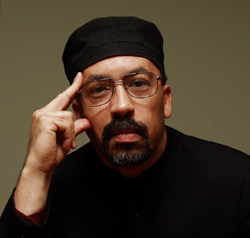Introduction
In October 2017, a team of progressive researchers published “Autopsy: The Democratic Party in Crisis,” which probed the causes of the disastrous 2016 election defeat. The report came in the wake of the party leadership’s failure to do its own autopsy.
In a cover story for The Nation, William Greider wrote that the Autopsy is “an unemotional dissection of why the Democrats failed so miserably, and it warns that the party must change profoundly or else remain a loser.” La Opinión reporter María Peña summed up the findings this way: “To revitalize its base for future elections, the Democratic Party has to clean up the rubble of its defeat in 2016 and develop a strategy beyond condemning the actions of President Donald Trump.”
Now, “Democratic Autopsy: One Year Later” evaluates how well the Democratic Party has done in charting a new course since the autumn of 2017. This report rates developments in each of the seven categories that the original Autopsy assessed -- corporate power, race, young people, voter participation, social movements, war and party democracy.
The upsurge of progressive activism and electoral victories during the last year has created momentum that could lead to historic breakthroughs in the midterm elections and far beyond. Realizing such potential will require transforming and energizing the Democratic Party.
In a cover story for The Nation, William Greider wrote that the Autopsy is “an unemotional dissection of why the Democrats failed so miserably, and it warns that the party must change profoundly or else remain a loser.” La Opinión reporter María Peña summed up the findings this way: “To revitalize its base for future elections, the Democratic Party has to clean up the rubble of its defeat in 2016 and develop a strategy beyond condemning the actions of President Donald Trump.”
Now, “Democratic Autopsy: One Year Later” evaluates how well the Democratic Party has done in charting a new course since the autumn of 2017. This report rates developments in each of the seven categories that the original Autopsy assessed -- corporate power, race, young people, voter participation, social movements, war and party democracy.
The upsurge of progressive activism and electoral victories during the last year has created momentum that could lead to historic breakthroughs in the midterm elections and far beyond. Realizing such potential will require transforming and energizing the Democratic Party.
The Autopsy task force:
Karen Bernal is a three-term Chair of the California Democratic Party's Progressive Caucus, as well as a member of the CDP's Executive Board. She served as Co-Chair of California's Bernie Sanders delegation to the 2016 Democratic National Convention in Philadelphia.
Pia Gallegos is Chair of the Adelante Progressive Caucus of the Democratic Party of New Mexico.
Sam McCann is a writer and researcher whose recent projects include Michael Moore’s Fahrenheit 11/9.
Norman Solomon is co-founder of RootsAction.org, an online activist group with 1.3 million active supporters in the United States. He was a delegate to the Democratic National Convention in 2008 and 2016, and was the national coordinator of the Bernie Delegates Network in 2016.



